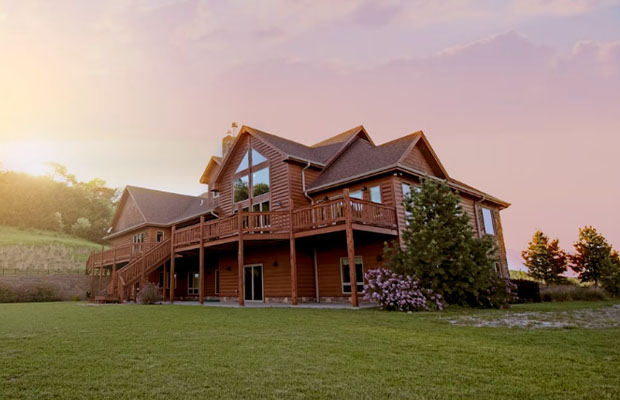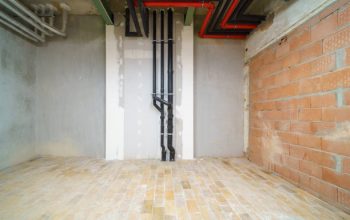The majority of people will spend their entire lives saving for a house. Here are some of the elements that the challenging housing market is caused by, along with some information on those most impacted.
Why is real estate so expensive? Housing has remained a challenge for both buyers and renters alike as inflation, gas prices, and other rising costs have put a strain on people’s wallets. Read on to discover more information about expensive house prices.
Table of Contents
7 Reasons Why Is Real Estate So Expensive
The steady increase in housing costs is a result of political and economic changes. Other vital wages rise factors that factor into why houses cost so much include:
- Lower Interest Rates
- Demographic Change
- Higher Building Costs
- Lower Builder Trust
- Augmentation of Land Prices
- State Subsidies
- Increase in Local Zoning Regulations
1. Lower Interest Rates
Low-interest rates, particularly in recent years, have been a major factor in domestic price increases over time. If interest rates are lower, financing a home will be less expensive, which will encourage more people to become homeowners. Almost often, this rise in demand is the reason why are houses so expensive right now.
2. Demographic Change
Housing costs have increased due to the aging generation of home buyers, or “millennial pricing.” The demand for homes increased in the previous few years as a result of this segment starting to purchase real estate. Most significantly, buyers over a thousand years old prefer suburban or mixed areas.
3. Higher Building Costs
Not all building supplies are produced in the US; instead, they frequently need to be imported from other nations. Political developments and trade agreements have caused changes in import prices over time. This has assisted in driving up construction costs in the housing market. Tariffs have increased the cost of many materials compared to their previous levels.
4. Lower Builder Trust
A relatively recent factor that raises housing costs is a decline in home construction. During the Great Recession, a lot of builders suffered significant losses on new construction. Unfortunately, many construction companies and construction companies continue to be wary of price declines caused by losses.
5. Augmentation Of Land Prices
Population growth has reduced the amount of land in the nation over time. There is no shortage, but the cost of buying the ground has generally increased. Average home prices are directly correlated with the increase in land costs.
6. State Subsidies
The US government has tried to cut costs as housing costs have risen. These homeownership initiatives increased prices even though they were advantageous to some people. Subsidies, according to the theory, enable home buyers to pay more for real estate, increasing the price paid by sellers.
7. Increase In Local Zoning Regulations
Construction and zoning regulations have advanced significantly since 1940, as you may already be aware. The changes made to this legislation, particularly in urban areas, have directly increased home prices. Some examples of zoning restrictions include neighborhood restrictions, allowance requirements, and laws that control population density. Together, they have increased the cost of homes, frequently reducing the supply of homes that could be built.

Who Are Today’s Homebuyers?
The lack of starter homes is especially important because the millennial generation is now at what economists call “peak home-buying” age. This generation is the largest since the Baby Boomers, according to the economists at Freddie Mac, with 72 million members.
Instead of newly constructed homes, which are typically more expensive, the majority of first-time homebuyers typically focus on pre-existing homes that are within their price range. However, since the pandemic began, the older generation has been reluctant to sell their homes, which, according to Freddie economists, will result in a shortage of about 1.6 million homes through 2018.
According to a report by Redfin, a national real estate brokerage, occupancy rates in senior-living facilities decreased to 74% in January 2022 from 85% prior to the pandemic as many seniors preferred to live in their homes due to the Covid-risk in larger shared-living facilities.
More affluent homebuyers purchased second homes as a result of Covid, possibly because they had more money saved up from their time in quarantine.
Over the past two years, this demand has been as much as 90% higher than pre-pandemic levels, a phenomenon that isn’t helping the supply shortage.
Institutional investors, who have acquired a sizeable portion of the scarce supply, are also now posing a greater threat to the average homebuyer.
Redfin reports that a record-breaking 18.4% of homes were purchased by investors during the fourth quarter of 2021. That adds up to 80,000 homes over the course of three months, which many researchers believe to be in addition to the more than 200,000 homes that private equity real estate firms are believed to have purchased during the post-financial crisis period.
Investors typically make payments in cash rather than through a mortgage, which makes their offers much more reliable and appealing to sellers. Since they are not financing, they might be able to make a bid that is a little bit higher than the asking price without having to worry about an appraisal.
How Do Rising Home Prices Impact Investors?
Higher home prices translate to higher purchase costs for real estate investors and potential profit. Investors, like all buyers, must set aside cash due to the rising cost of housing. The ability to act quickly on offers is crucial, though, as their livelihood depends on their ability to sell the property they purchase.
The potential income of an investor may rise as housing values rise. The value of homes is increasing more quickly than ever, which is the cause. If you are fortunate enough to invest in real estate at the right time, you will stand to gain a lot from rising property values.
What If You Want To Buy A Home In Today’s Hot Market?
For first-time homebuyers and those with low-to-medium incomes, the current housing market is much more difficult to enter, but there are some benefits to be aware of.
To begin with, mortgage rates are still low when compared to historical patterns. Additionally, there are a lot of mortgage lenders that provide different first-time homebuyer programs or ways to reduce your mortgage costs, like buying down interest rate points.
Make sure you are fully prequalified and work to improve your credit score. Additionally, look into all of your options for down payment assistance.
Additionally, you have the option of working with a mortgage broker who can help you start the application process and help you search widely for mortgage offerings.
While it’s crucial to keep an eye on online housing listings on sites like Redfin, Zillow, and Realtor.com, working with the right real estate agent will enable you to focus your search and, in the end, locate the best home deal for you.
Read More: Is It Smart To Buy A House In 2022?
Final Thoughts
The American dream is often summed up by home ownership. Others depend on a business choice for their livelihood. Everyone who has recently been looking to buy a home has encountered difficulties due to the increase in property prices.
U.S. government attempts to subsidize costs have failed. home prices have continued to climb dramatically. The high cost of housing is caused by a variety of factors. If you want to own real estate, make sure to plan ahead and look into all the different financing options available.



